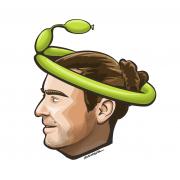Presentations

The SPI, or Serial Peripheral Interface is a protocol developed by Motorola which has become a defacto standard for short distance communication between CPU and peripherals. Although it can be called by several different names, it is a very common bus on embedded devices. This seminar will introduce SPI generally and SPIdev which is a Linux userspace API to write simple SPI drivers without having to write kernel code
Attending this workshop requires pre-registering for the Embedded Apprentice Linux Engineer Training Course.

This hands-on workshop is for software developers who want to build foundational knowledge of automating and orchestrating even your most complex processes with Camunda Platform 8.

As a DevOps professional, you have likely built lots of custom tooling and workflows for managing resources in your infrastructure. You probably also have a constant backlog of internal tools requests to build that your whole team can use. In this workshop, you will learn how Retool’s drag-and-drop UI components and built-in integrations can quickly convert these processes into flexible software accessible to your entire team.

The workshop requires that you have: a GitHub Account, kubectl, a Kubernetes cluster or Docker Desktop and kind.
The Argo CD 101 workshop will provide an introduction to Continuous Delivery (CD) and GitOps. You will learn the core concepts of Argo CD and how they fit into these practices. During the hands-on part, you will implement Argo CD using best practices and manage the deployment of Helm charts.
After the workshop, you will receive a certificate of completion and a digital badge.

Are you a community manager looking for insights into your community using open source tools? Are you a data scientist looking to build custom visualizations in Python or with Dash framework? This workshop is for you! Red Hat’s Open Source Program Office’s data science team will walk you through a 2 part workshop. In the first part, you’ll set up your own Augur database to collect Github data on the projects you care about. In the 2nd part of the workshop, we will work together to build a new Plotly visualization using data from Augur & the 8Knot dashboard visualization template.

Augmented and Virtual Reality are finally becoming practical, but the existing headsets don't do much. This technology has been promised to revolutionize our lives, but some of the biggest forces holding it back are the legacy of old inflexible operating systems and UI design. We can do better.
So in this talk I'll explain why Linux and open source in general can do better than the other available options. We have most of the pieces of the FOSS XR ecosystem to make really compelling spatial computers such as my project, Stardust XR, as a new system UI made from scratch for 3D.

Designing infrastructure that is Distributed, Immutable and Ephemeral will automatically integrate security by default, and adding controlled chaos to the process ensures that you are continually learning and improving.
In this talk I’ll highlight how the D.I.E. triad can help us be more secure while expecting for things to fail, and embrace the chaos.
